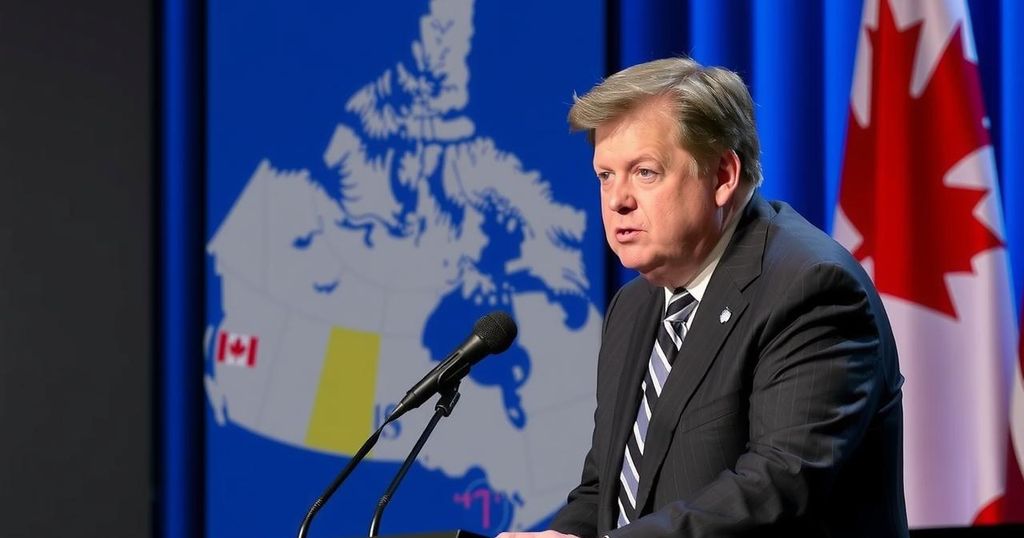Canadian Leaders Respond to Trump’s Proposed Tariff Policy

U.S. President-elect Donald Trump plans to impose a 25% tariff on imports from Canada, which has drawn sharp criticism from Canadian officials like Ontario Premier Doug Ford. Concerns emphasize the economic impact on workers on both sides of the border. Discussions are underway between Prime Minister Trudeau and Trump to address the ramifications of this proposed tariff as Canada accounted for $437 billion in U.S. imports in 2022.
Concerns have escalated in Canada following U.S. President-elect Donald Trump’s proposal to impose a 25% tariff on imports from Canada, Mexico, and China. This measure has been portrayed by Trump as a strategy to combat illegal immigration and drug trafficking. Doug Ford, the Ontario Premier, condemned the tariff as “devastating” to both Canadian and American workers, prompting discussions between Prime Minister Justin Trudeau and Trump regarding the potential repercussions. The Canadian ministers emphasized the critical nature of the U.S.-Canada trading relationship, citing that Canada accounted for $437 billion in U.S. imports in 2022.
Ford’s remarks resonated with other provincial leaders, with calls for collective action to address border security and the economic impact of such tariffs. While some leaders acknowledge the issues raised by Trump regarding unregulated border crossings, they urge for a thorough evaluation of potential tariffs’ consequences. Experts have indicated that the northern U.S. border is notably lengthy and less monitored compared to its southern counterpart, which is subjected to intense scrutiny. Concerns about illegal crossings have grown, with recent figures showing a significant increase in arrests related to smuggling operations.
Overall, the situation underscores the delicate balance required in maintaining the U.S.-Canada trade partnership while addressing concerns around border security. The ultimate implications of Trump’s proposed tariffs remain uncertain, but the Canadian leadership is advocating for proactive measures to protect jobs and economic interests.
The context of the article revolves around U.S. President-elect Donald Trump’s proposal to levy tariffs on imports from key trade partners, including Canada, Mexico, and China. The initiative is ostensibly aimed at addressing issues related to illegal immigration and drug trafficking. The response from Canadian officials, especially within provincial leadership, indicates a significant concern for the economic ramifications of such a tariff policy, particularly given Canada’s role as a major trading partner with the United States. The article highlights ongoing discussions among Canadian leaders regarding border security and trade policies.
In conclusion, President-elect Donald Trump’s tariff proposal has raised serious concerns among Canadian officials about potential job losses and economic strains in the context of the U.S.-Canada trade relationship. Doug Ford’s characterization of the situation as “devastating” reflects the anxiety surrounding cross-border trade dynamics and border security issues. The Canadian government is actively involved in discussions with U.S. leadership to seek solutions and mitigate adverse impacts on their economies.
Original Source: www.bbc.com




